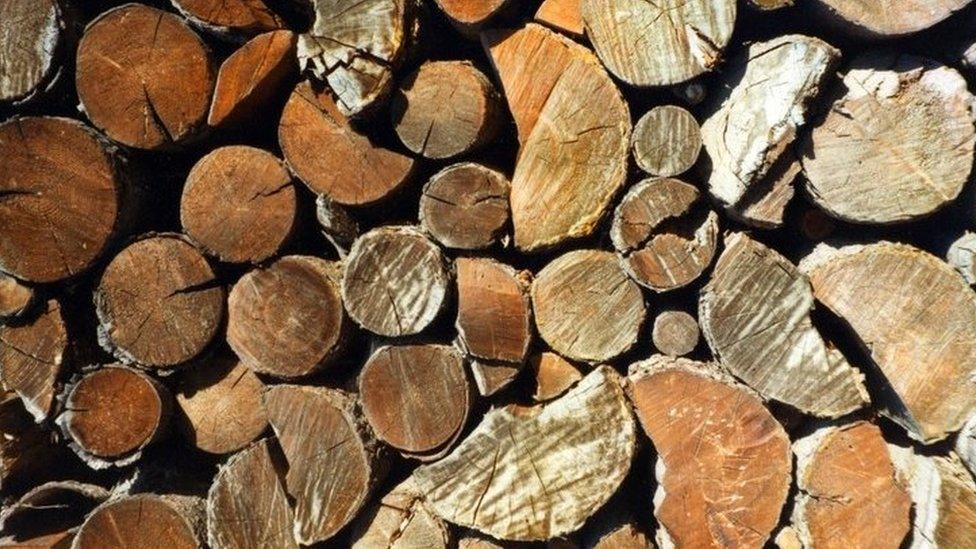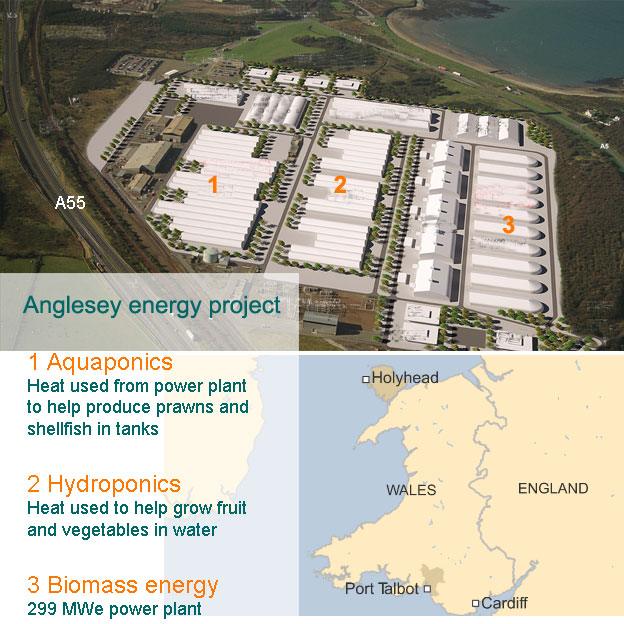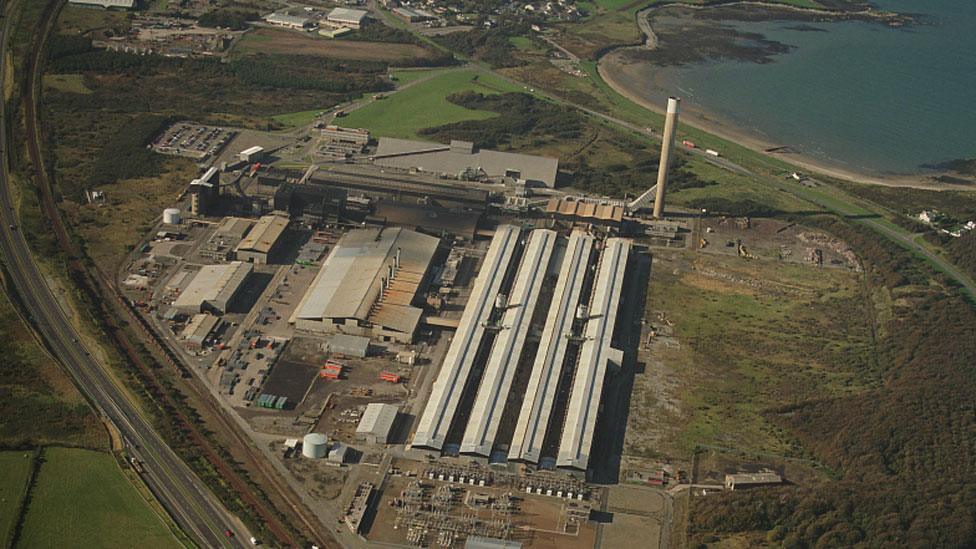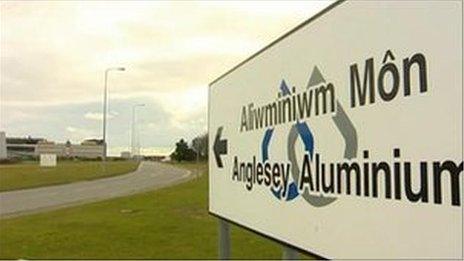Q&A: What is biomass?
- Published

What is biomass?
It is energy created by burning material - formerly a plant product.
The fuel can be crops, dung, elephant grass or as in this case, wood - off-cuts like branches and roots from stripped timber and woodchip for example.
It can work in the home, in communities or on the scale of a power plant, to create steam to drive turbines.
Where will the wood come from to fuel the boilers?
The operators Orthios say 80% of the wood will come from abroad, likely to be from Scandinavia or North America. Both the Holyhead and Port Talbot plants are next to ports.
But the company also wants to "encourage locally sourced and grown forestry material".
Isn't that less green then if you're transporting the material in?
The company admits this does contribute to the overall "carbon footprint" of biomass fuel but shipping it in was still "remarkably efficient" and the project would deliver large carbon savings as a whole.
What about emissions?
Orthios says it uses advanced gasification technology to minimise exhaust gases and these will be "carefully controlled".



How much electricity will be generated?
The developers say the 299MW Holyhead plant will be capable of producing enough electricity to power 300,000 homes.
It aims to gasify 1.8m metric tonnes of biomass a year.
How widespread is biomass at the moment?
Geoff Bockett explains how using biomass fuel reduced bills at Minsteracres Retreat Centre
It's still comparatively small in the UK - fewer than 5% of the UK's homes are heated by biomass boilers. It has been called "an untapped resource" which can be very versatile and used as a fuel for electricity, heat and transport as well as the production of industrial material.
Some environmentalists say biomass can play a part but we need to focus on "home grown" resources like wind and tidal renewable energy.
What is it worth to the economy?
Anglesey MP Albert Owen says the announcement is good news for the island
The Welsh government's Low Carbon Energy Plan last year, external estimated biomass already contributed £279m in sales in 2009/2010 and there is scope for more.
The Holyhead plant will be built on the site of Anglesey Aluminium, which closed with 400 job losses, so it is seen as an economic boost and in line with ambitions to create an "energy island".
Other biomass projects are promising jobs - including 560 in Pembrokeshire. by Cypriot-owned Egnedol.
What is different about this project?
The waste carbon dioxide and heat will also be used to produce food for eco-businesses next door to the power plant at Holyhead. Vegetables will be grown in water in hydroponic buildings and shellfish, like prawns, will be reared in warm water - from the power plant's excess heat - on a aquaculture farm as part of the project.
When will work start?
Work will start in six months time and the first phase should be ready to open in 2017. Mainly the jobs will be sourced locally - both to build the plants and the 1,000 that will operate the power plant and eco-businesses.
- Published20 October 2015

- Published19 October 2015

- Published29 October 2014
